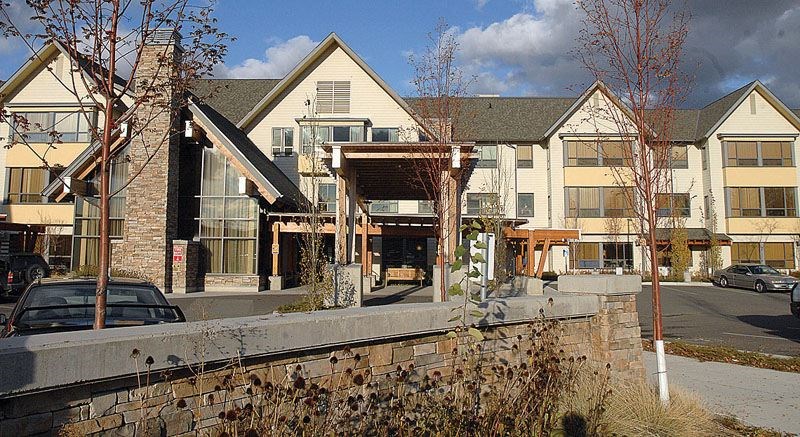The third floor of Northern Health's Gateway Lodge, which has been sitting empty since the facility was opened in May 2010, will now be renovated and opened in January or February to house 15 complex care beds and 11 beds for respite and convalescence.
The third floor was originally designated to be privately operated market housing but the developer backed out of the deal and Northern Health went on with its original plan, which was to open and operate the 94 complex care bed component in one wing of the lodge, and two floors consisting of 50 assisted living units.
"The way the area is designed there's a natural cluster of 15 and a natural cluster of 11," said Michael McMillan, NH's chief operating officer,. "Currently there are only four beds available for respite, so you can see that adding 11 is a fairly significant increase."
After discussion with staff to get an understanding of need, Northern Health decided 15 complex care beds were needed, while 11 for respite and convalescence would serve the community well, McMillan added.
Complex care beds are for those seniors that need round-the-clock care in a residential setting.
"The respite is for people living at home supported by family or loved ones whose caregivers need a break at some point," said McMillan.
The person needing care can be admitted for a week or a two-week period, giving the caregivers some relief because one of the challenges for people who care for their loved ones is burnout, he added.
"We think increasing the respite numbers will significantly reduce burnout and, in the end, support people to stay at home longer, which is something we are absolutely committed to doing," said McMillan.
The convalescent care concept is more of a rehabilitative approach.
When someone is admitted to acute care and finishes their treatment but isn't quite ready to go home, either with informal caregivers or independently, they can make the transition into something that's a little bit more support than being at home by going to the convalescent care bed, explained McMillan.
The care will not be quite as intensive as acute care, which allows the patient to get their strength up, while they get comfortable with going home and caregivers get ready.
"This should get people out of the hospital and supported in a different way," said McMillan. "These units are more like living in a small apartment, they have a small kitchen area, so if somebody wants to transition to independent living but with some support before they go home, this seems like a really good place to have a trial run."
Renovations to the assisted living third floor include changing the lighting, replacing the carpet with a linoleum type of flooring and installing a nurse-call system.
"We're working on this so it will be completed as soon as possible," said McMillan. "I think this is an opportunity to strengthen services in the community for citizens of Prince George."



